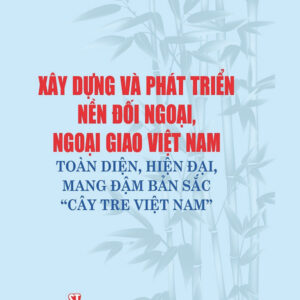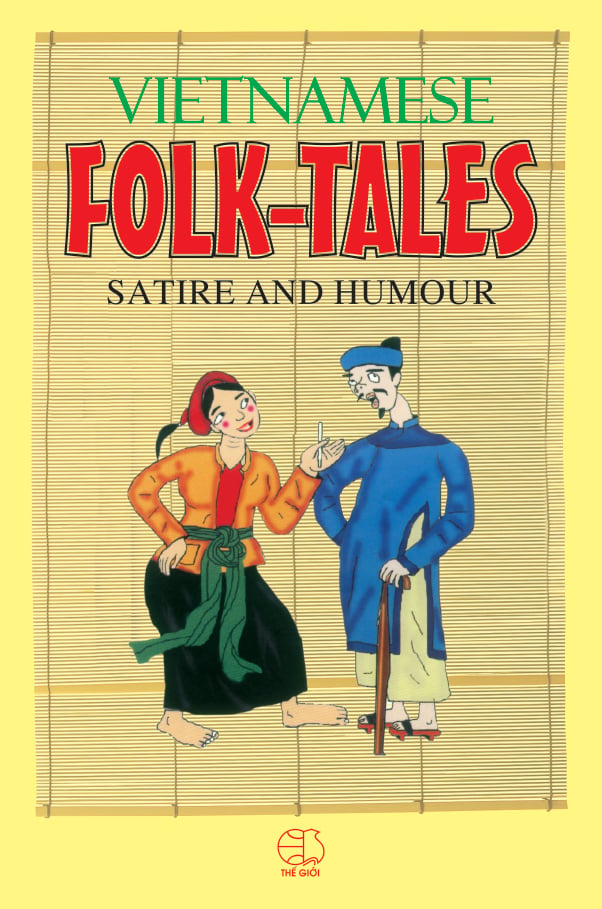In Việt Nam, while the folk-tales discreetly and prudently attack “social evils” often by the intermediary of animals – the mischievous or spicy stories, very numerous in a decadent feudal society, do so in a much more brutal fashion, openly displaying their contempt for those in power.
The gamut of Vietnamese laughter is infinitely rich. The essayist Nguyễn Tuân found one hundred and five Vietnamese expressions to describe the nuances of laughter. He went as far as affirming with a straight face that the laughter and humour are factors in the survival of the Vietnamese people whose country is “constantly at grips with typhoons, drought, torrential rain, floods and insects. Faced with such merciless nature, under the conditions of an inhuman feudal society, if there existed neither eternal flowers nor Homeric laughter, our people would not have been able to prolong its existence until the present day.”
Some tales provoke farcical laughter without satirical intent. Other tales, erotic in reaction to prudery, or simply rude, in particular in the series entitled tiếu lâm (forest of laughter), ridicule the hypocritical and falsely puritan Confucian morality.
But most of the stories express the wisdom of the people and let fly its arrows against the faults of others. They attack everyone especially the rich and the great, village elders, mandarins and landowners who exploit the humble people.
Among the spicy stories, those about Trạng Lợn and Trạng Quỳnh are among the most famous and most virulent.
Trạng Lợn (Doctor Pig) and Trạng Quỳnh (Doctor Quỳnh), like all other doctors of that kind, were not mythical people of the sky, the earth or the water, but the creations of the popular wit. They united common sense and malice, courage and banter, realism and subtlety. Their good tricks inflicted the often sharp criticism of laughter on the vanity of the great and the injustice of the feudal system. The mandarins who were the zealous servants of the regime were recruited by triennial examinations. Leading the prize-winners was the trạng or trạng nguyên, with the First-class Doctoral degree, to whom were reserved the highest functions.
The story of Dr. Pig, fool and careerist, whose boasts were only by chance useful, denounced the greed of the mandarins. It branded the vanity of the formalist scholars, ridiculed their predictions in a society which rode rough-shod over intelligence and talent.
The story of Dr. Quỳnh went further in its political and social criticism. While Dr. Pig was both object and subject of satirical jokes, Dr. Quỳnh was the very incarnation of intelligence, common sense, courage and the popular wit.
The era of Quỳnh (18th century) was the era when the Lê Kings reigned but did not rule. Power was shared between the Lords Trịnh in the North (where Quỳnh lived) and the Lords Nguyễn in the South. It was a period of bitter social crisis, of misery and of peasant revolts which shook the regime. Quỳnh, defying at the same time both spiritual and temporal power, attacked the whole feudal apparatus: religions and beliefs, guardian genii of the villages, animism, Buddhism and Taoism, education founded on scholasticism, with its examination system producing ignorant and formalist scholars, mandarinate for the highest grades. Doctor Quỳnh struggled until death by way of laughter and criticism. His death itself was a fast pirouette as he died of the poison which would kill the Lord. The ridicule bespattered even the Chinese emperor and his ambassadors.
The extraordinary success of the Trạng stories, their rapid diffusion in the towns and countryside and the rapid advance of the regional Trạng illustrated a whole social evolution.
Other scholars incarnating the spirit of rebellion of the people replaced Trạng Quỳnh: Xiển Bột (great-grandson of Trạng Quỳnh), Tú Xuất, Ba Giai and Nghè Tân. Their adventures, more or less true, were embroidered by the imagination of the masses, weary of the feudal regime.
Ngôn ngữ: tiếng Anh
Khổ sách: 10 x 15cm
Số trang: 154 trang

 Xây dựng và phát triển nền đối ngoại, ngoại giao Việt Nam toàn diện, hiện đại, mang đậm bản sắc "cây tre Việt Nam"
Xây dựng và phát triển nền đối ngoại, ngoại giao Việt Nam toàn diện, hiện đại, mang đậm bản sắc "cây tre Việt Nam" 